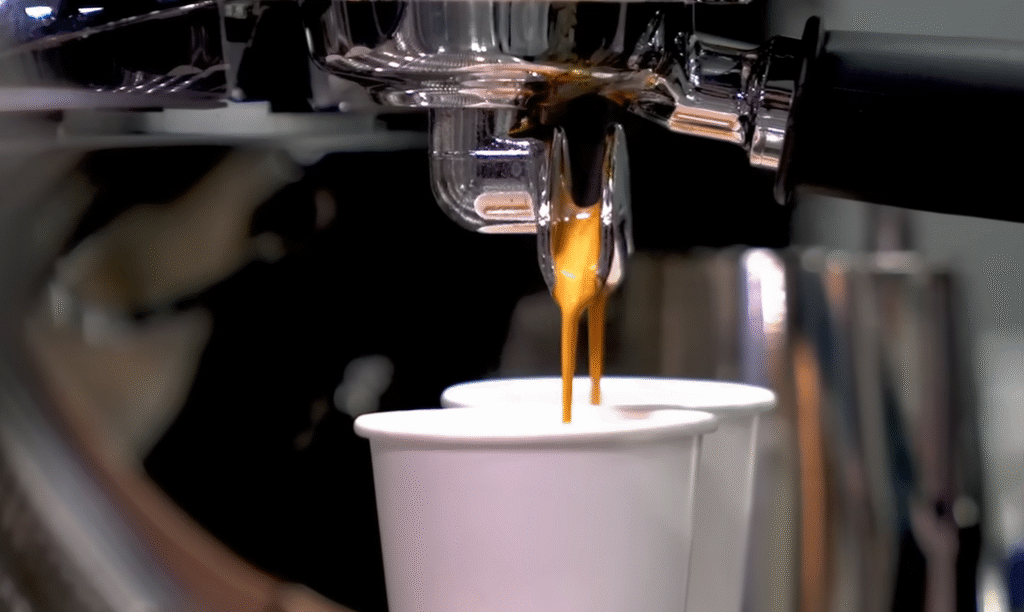Once hailed for revolutionizing the way millions brew their coffee, Keurig is currently embroiled in legal disputes that undermine consumer confidence. The business has had to face the repercussions of its environmental pledges and product longevity as a result of two class action settlements, one of which was completed in 2022 and the other is in progress in 2025. Together, they demonstrate how, when expectations are not fulfilled, convenience can turn into controversy.
In 2022, the first settlement addressed K-Cup pods’ capacity to be recycled. Keurig had advertised them as recyclable, a claim that was remarkably similar to tactics used by other businesses that were charged with exaggerating their environmental credentials. Yet, because of their size and composition, the pods could not be processed by the majority of US recycling facilities. Consumers who thought they were choosing sustainably found that their efforts had been in vain. In the end, Keurig consented to pay $10 million, giving households between $5 and $36, and promised to make its packaging very explicit about its recycling restrictions. The case served as a lesson in how quickly trust can be damaged by greenwashing, even if it is unintentional.
After three years, Keurig encountered yet another difficulty, this time related to its K-Supreme coffee makers. Customers complained that after following Keurig’s own descaling instructions, their machines stopped working. Customers were irritated not just by malfunctions but also by dependability. Making coffee is a ritual, and daily routines are upset when the machine breaks down. The business offered both cash and extended warranties as part of a $950,000 settlement fund. This action tactfully denied misconduct while acknowledging customer annoyance. In actuality, it demonstrated how legal prudence and accountability can coexist, a strategy strikingly similar to Apple’s handling of the battery throttling issue.
Table: Keurig Class Action Settlement – Key Information
| Category | Information |
|---|---|
| Defendant | Keurig Green Mountain, Inc. (part of Keurig Dr Pepper) |
| Lawsuits | 2022 K-Cup Recyclability Case; 2025 K-Supreme Coffee Maker Defect Case |
| 2022 Settlement | $10 million for misleading recyclability claims of K-Cups |
| Eligibility 2022 | Consumers who purchased “recyclable” K-Cups between June 8, 2016 – August 8, 2022 |
| 2022 Benefits | Cash payments between $5–$36 per household; updated packaging to clarify recycling limitations |
| 2025 Settlement | $950,000 settlement fund for defective K-Supreme models |
| Eligibility 2025 | Purchasers of K-Supreme, K-Supreme Plus, and K-Supreme SMART between Oct 1, 2020 – June 20, 2025 |
| 2025 Benefits | Up to $250 cash or extended 12-month warranty for affected machines |
| Court Hearing | Final approval set for September 30, 2025 |
| Reference Link | K-Supreme Settlement |

The public’s response to these settlements has been quite polarizing. Some view the payouts as evidence that consumers can hold big businesses accountable and as a victory for accountability and transparency. Others contend that, in light of Keurig’s earnings, the financial remedies are surprisingly modest. Discussions about other corporate settlements, like those involving H&M’s green marketing scandals or Coca-Cola’s lawsuits over deceptive health claims, are similar to this one. Although the settlements in each case may appear minor, they have symbolic meaning and force businesses to come under closer scrutiny.
The 2022 settlement was hailed by environmental organizations in particular as a clear illustration of how corporate sustainability messaging can be deceptive. They contended that in addition to being untrue, the recycling claim severely eroded consumer trust in more extensive recycling initiatives. Similar cases have changed how businesses portray their environmental commitments in recent years. The example of Keurig demonstrates that the need for incredibly transparent labeling and open communication is not a fad but rather a growing consumer expectation.
In contrast, the 2025 settlement highlights the rising need for long-lasting and extremely effective products. Appliances that break down too soon are no longer acceptable to consumers, especially when they are marketed as high-end products. Keurig has been forced to face its role in providing dependability, much like Samsung was criticized for the durability of its phones and Tesla for the quality of its construction. Providing extended warranties is a significant improvement over leaving customers without recourse, even though it may not completely eliminate the inconvenience. It proves that even modest actions can have a profound impact on restoring trust.
The changing balance between innovation and accountability is another cultural trend that these lawsuits highlight. Convenience was the foundation of Keurig’s reputation, revolutionizing the coffee market with its highly adaptable and user-friendly product. Its rapid ascent, however, raised expectations that it occasionally failed to live up to. Similar to Nike’s labor practices or Uber’s regulatory compliance issues, Keurig is currently facing a cultural reckoning. The business must demonstrate that it can innovate responsibly or risk alienating a customer base that has become less understanding and more outspoken.
Beyond coffee, the settlements have resonance. They draw attention to consumers’ growing readiness to confront businesses whose actions seem dishonest or negligent. This change is similar to trends in technology, fashion, and beauty, where influencers and watchdog organizations are scrutinizing brands more closely. While household behemoths like Johnson & Johnson have had to deal with sizable settlements linked to consumer trust, celebrity-endorsed brands like Kylie Jenner’s cosmetics line have been sued over product quality. This story is well-suited to Keurig’s case, which serves as a reminder to businesses that loyalty must be consistently earned rather than purchased.

